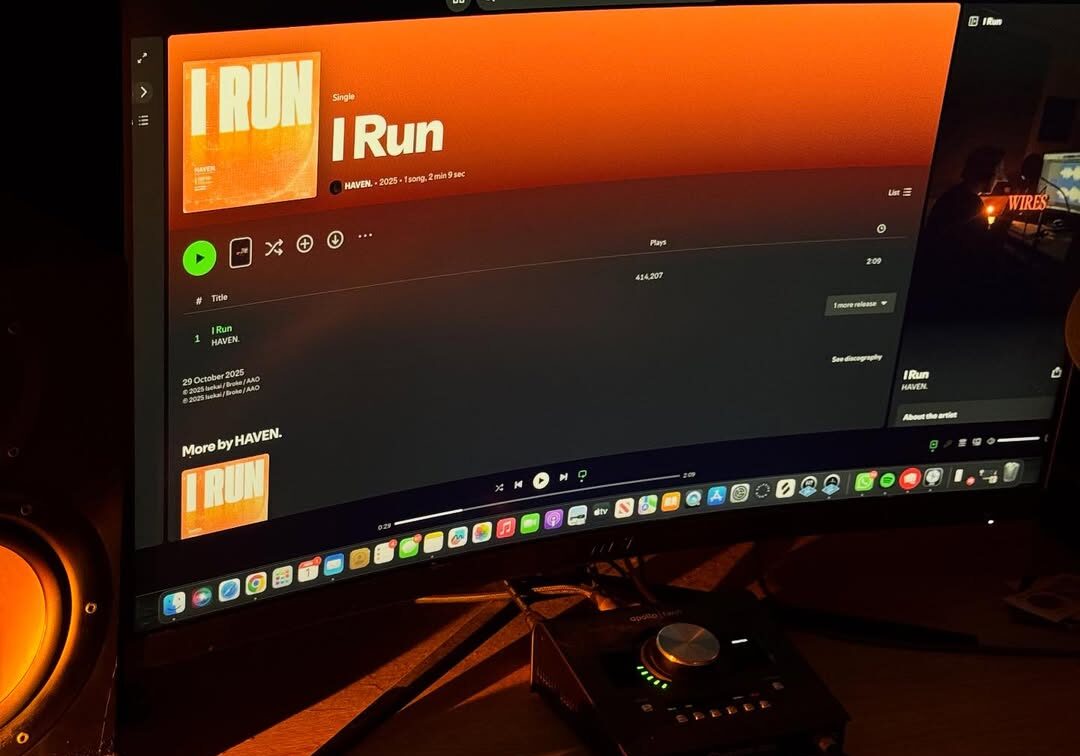
Viral Dance Hit “I Run” Pulled From Spotify Amid AI Generation Controversy
The creators of “I Run,” which amassed over 13 million streams on Spotify, will receive no royalties for their viral success after the platform removed the track for suspected AI-generated vocals that mimicked established artists.
A breakout dance track that climbed to No. 11 on Spotify’s US charts has been removed from major streaming platforms following allegations it used AI-generated vocals, marking the latest flashpoint in the music industry’s battle with artificial intelligence.
Released October 28th by the previously unknown artist HAVEN, who had no prior releases, “I Run” racked up over 13 million streams on Spotify alone before vanishing from the platform and its top competitor, Apple Music. A Spotify spokesperson released a statement this week confirming the removal.
“Spotify strictly prohibits artist impersonation,” the rep said. “This track was detected and removed, and no royalties were paid out for any streams generated.”
The breakbeat track sparked immediate suspicion due to its mysterious origins. Social media users initially claimed the vocals belonged to British singer-songwriter Jorja Smith, citing the striking similarity between the mystery vocalist and Smith’s distinctive sound. The Grammy-nominated artist later denied involvement, commenting on TikTok: “It’s not meeeee.”
London-based producer Harrison Walker has since identified himself as the artist behind HAVEN. He insists the vocals are his own voice, heavily processed through effects and filters. In a TikTok video showing only the back of his head, Walker addressed the controversy, stating, “It’s HAVEN, I just wanted to jump on here to show you that I am a real person.”
Fellow London beatmaker Jacob Donaghue was credited as a co-producer of “I Run” on streaming platforms and mentioned as such in an Instagram post by Walker, who also tagged Matt Cahill as the track’s audio engineer. In a post of his own, Cahill shared a video in which he discusses the process of recording vocals with his phone before feeding them through Suno, the controversial generative AI platform.
The controversy highlights streaming platforms’ increasing scrutiny of AI-generated content. While AI tools for music production have become more sophisticated, platforms like Spotify maintain strict anti-spam policies against using synthetic vocals that mimic real artists without proper disclosure or rights.
Whether “I Run” will return to streaming services remains unclear, though Walker claims that his team is working to restore the track to streaming platforms. At the time of this writing, the song remains available to stream on YouTube.








